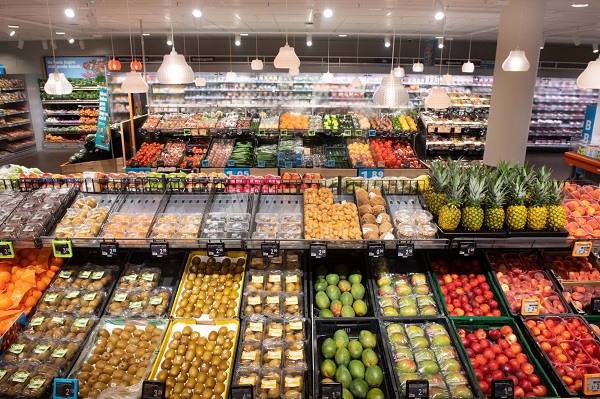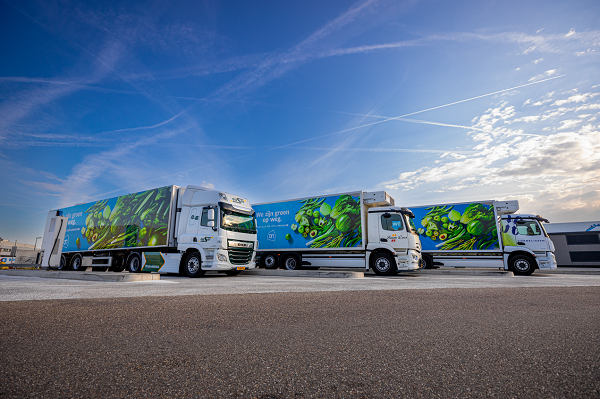As announced last year, the Dutch supermarket chain, Albert Heijn (AH), will stop flying in fruit and vegetables. From June 1, 2023, products like sugar snaps, haricots verts, and passion fruit will only be transported via sea container or road transport. In recent years, to ensure quality and in cooperation with growers and suppliers, much hard work has been done finding alternative transport options and other cultivation areas.

Photo: Albert Heijn
AH buys its fruit and vegetables as locally as possible and as far away as necessary. Quality, sustainability, food safety, cost price, and other factors influence the choice between near and far. As far away as necessary means something not grown in the Netherlands, such as oranges. From a climate impact perspective, air transport is not a sustainable means of transport. Albert Heijn is, therefore, constantly looking for ways to grow products in the Netherlands or closer by or to use more sustainable transportation.
See and road freight
Henk van Harn, AH's merchandising and sourcing director, says the supermarket keeps taking steps in supply chain sustainability. "From June 1, 2023, we'll transport all our unprocessed fruits and vegetables via sea container or road transport. That's not an overnight choice. We have a responsibility to our suppliers with whom we've worked for decades," he admits.
The entire food production chain needs to change. Albert Heijn does that based on its mission to 'Together, making better food accessible. For everyone.' "We believe it's important to be responsible in how we impact the environment. We want to keep our activities effect as small as possible," Henk concludes.
 Photo: Albert Heijn
Photo: Albert Heijn
Dutch-grown
Half of AH's fruit and vegetables come from the Netherlands. That share continues to grow by, for instance, better utilizing and extending seasons via new growing and storage methods. In recent years, Albert Heijn has sold more than 40 million more Dutch-grown products.
Those include strawberries in the summer season or early Elstar apples. Products such as Conference pears and potatoes are already available year-round from the Netherlands. The supermarket is currently testing small-scale cultivation of Dutch ginger, usually imported from China or South America.
Source: Albert Heijn
